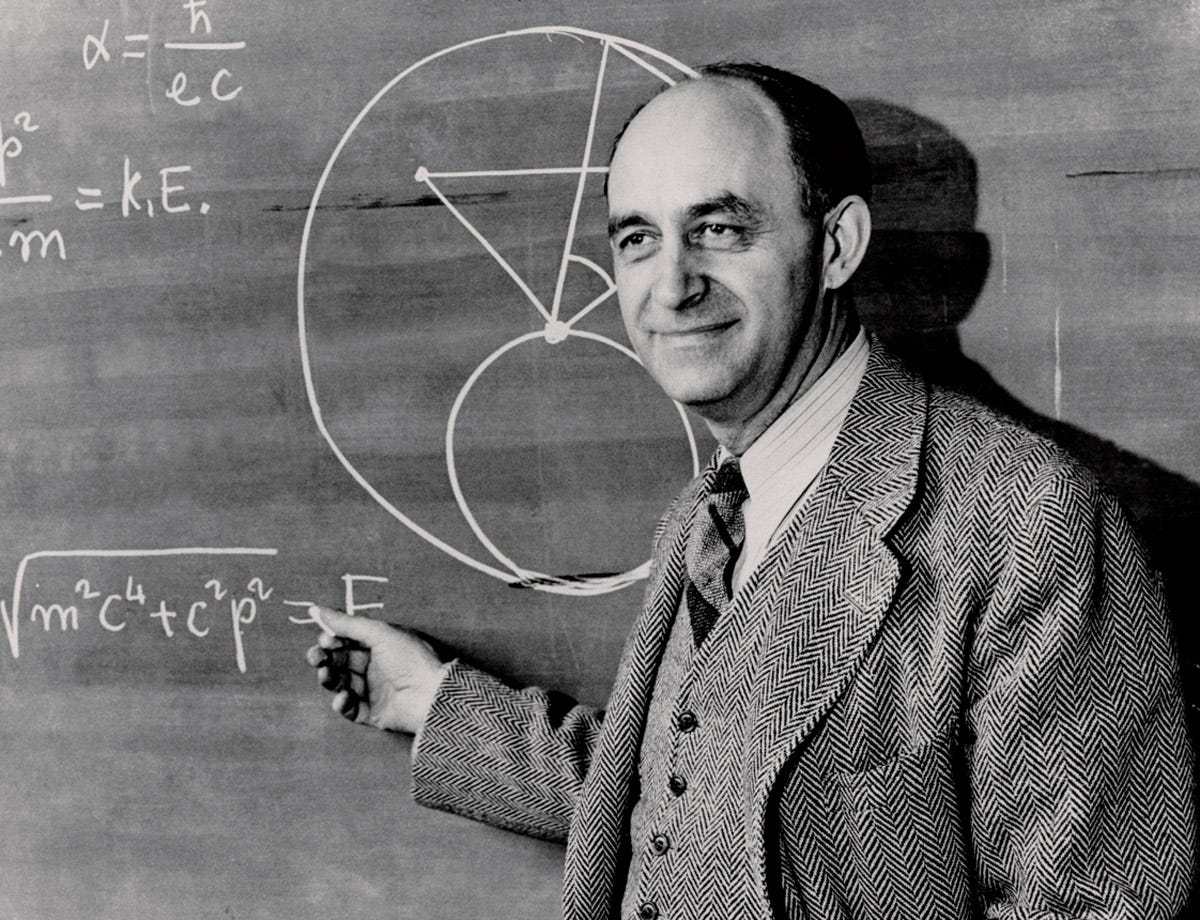The Fermi Problem
And what it can teach us about assessing VC investments statistically
Enrico Fermi was an Italian physicist and the creator of the world’s first nuclear reactor, the Chicago Pile-1. He is famed for his work in statistical mechanics, quantum theory and particle physics.

Fermi applied statistical thinking to any uncertain problem. You may have heard of the Fermi Paradox - the contradiction between the statistical likelihood of intelligent life elsewhere in the universe, and the fact that no little green men have yet turned up on our doorstep (unless the “Deep State” is covering it up, of course).
The classic "Fermi problem" is much more down to earth: "How many piano tuners are there in Chicago?"
This is known as a question interviewees have faced at Google.
At first glance, it seems rather difficult to solve. However, by thinking logically and using some very simple maths to multiply together a series of estimates, we can get much closer to the right answer than by taking a blind stab in the dark.
But before we do this, write down your gut estimate, straight off the top of your head. It will be interesting to come back to it.
Now, let's have a crack...
Assumptions:
There are approximately 2,700,000 people living in Chicago
I’ll be honest, I googled this - I don’t know much about American cities. However, from hereon it is brain work only.Let's say on average, there are about 2.5 people in each household in Chicago.
A lot of young people in big cities in the USA live alone. However, some (let’s say half) also live with a couple of flatmates. The average American family has probably 2 children. Older people will be in couples or alone.Roughly one household in thirty has a piano that is tuned regularly.
This is a pretty tough one to get right. I've based my guess on the fact that in all my time living in London (a somewhat comparable place), I've visited two people with a piano in their house, and I've probably visited about 80 houses / apartments. I mainly socialise with young people, who are probably a bit less likely to own a piano, and also probably a bit less likely to tune it (no kids to play it).Let’s assume there are about 7,000 pianos in concert halls, schools and public venues.
Maybe 5,000 in schools (for the approx. 700,000 kids) plus 2,000 in churches, concert halls, etc (one per thousand adults).Pianos that are tuned regularly are tuned on average about once per year.
I know this because my parents used to own a piano (incidentally, the piano tuner was blind, which I always thought was quite cool).It takes a piano tuner about two hours to tune a piano, including travel time.
I know this because my parents used to own a piano. I was always fascinated to watch the guy do it, because he was blind.Each piano tuner works eight hours in a day, five days in a week, and 50 weeks in a year.
Americans don't take a lot of holidays.
Calculation
From these assumptions we can compute that the number of pianos in Chicago is: (2,700,000 people in Chicago) / (2.5 persons/household) × (1 piano / 30 households) + 7,000 other pianos = 43,000 pianos.
That means 43,000 tunings if they are tuned once a year.
And we can similarly calculate that the average piano tuner performs: (50 weeks / year) × (5 days / week) × (8 hours / day) × (1 piano tuning per 2 hours per piano tuner) = 1000 piano tunings per year per piano tuner.
Based on this, I'm going to estimate that there are 43 piano tuners in Chicago.
So how well did i do? 🤔
Results
A quick Yelp Search indicates a total of 28 piano tuners in Chicago. This in itself is probably not 100% accurate (some of them aren’t on Yelp), so I’m going to say our estimate got us pretty damn close!
If I’d guessed off the top of my head, what would I have said? Probably a couple of hundred…
What can we learn from this?
We can approach the assessment of investment opportunities in VC - or market opportunities as a founder - with exactly the same statistical rigour.
The methodology is the same; the input variables are simply different. We need to think about team, market, competition, product/market fit, scalability, defensibility, etc. in numbers, and use this to assign a score. Different factors should be weighted differently, depending on how much we think they will influence the outcome.
Our final output should always be a probability assignment - i.e. what is the probability of this investment returning 5x / 10x / 100x ? How does this weigh up against the size of the potential return?
We should be open to revising this estimate up or down on the basis of new information, and we should use data and the opinions of other people to support our calculations.
If we do this right, we’ve probably got more chance of picking winners. Not sure about discovering aliens, though.

